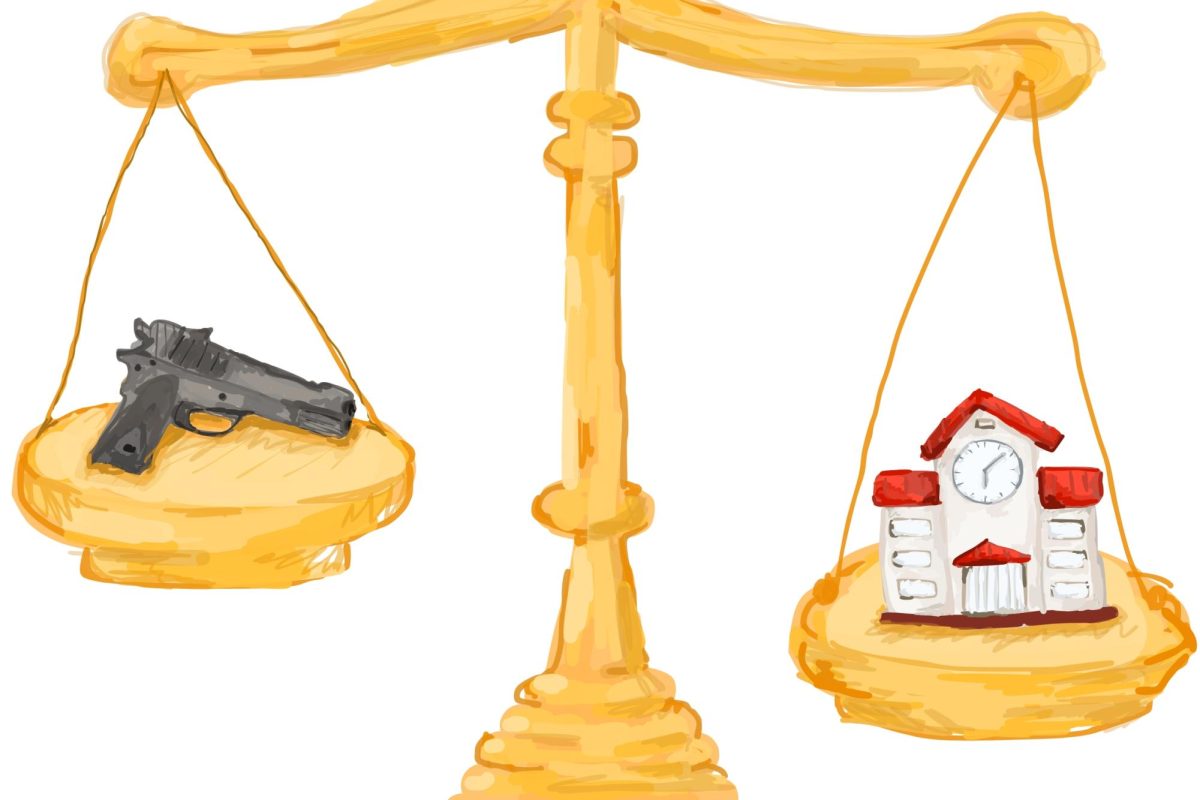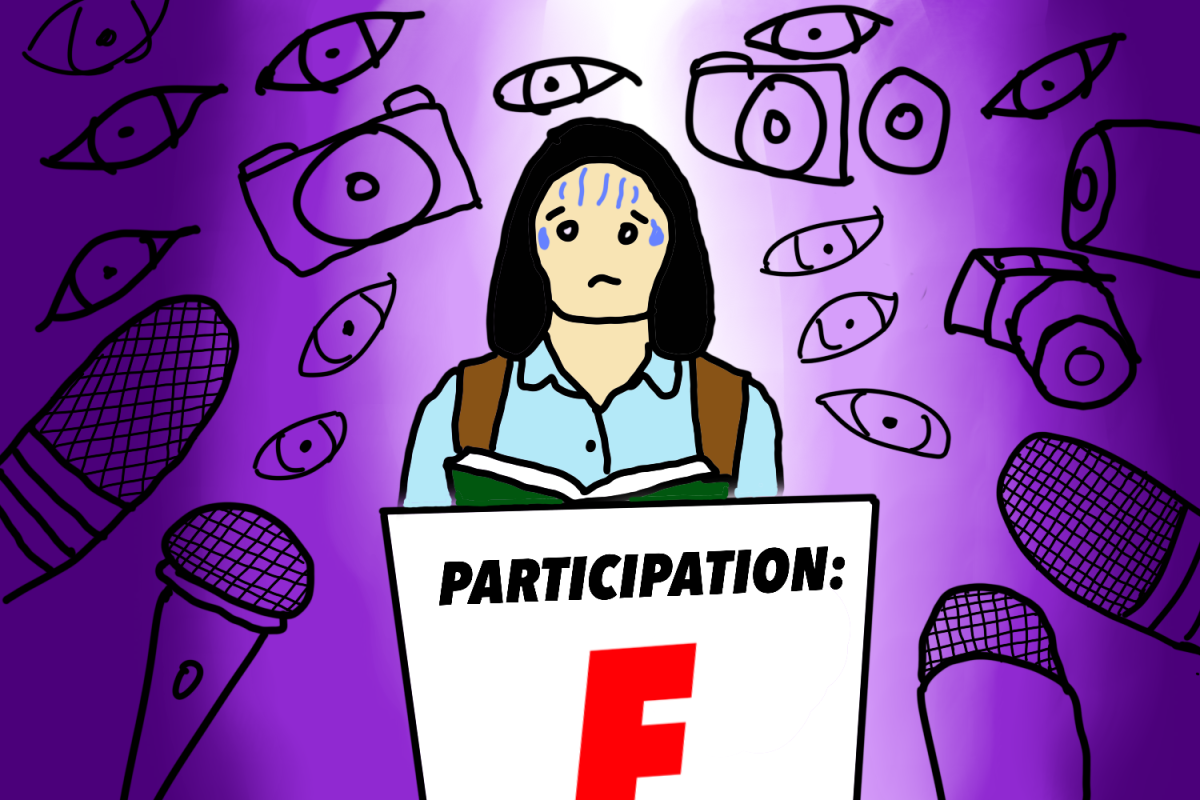No matter how far back one travels in time, the fear of the unknown and unexplained has always plagued mankind. Superstitions have been floating around for millennia, and somehow, their presence continues to make a huge impact today. While superstitions are supposed to function as a coping mechanism, they end up causing irrational fear and panic among individuals, and it is better to take these practices with a grain of salt.
Despite the supposed comfort they may bring, people tend to feel more anxiety and worry than comfort when they believe in superstitions, especially when the superstition is a symbol of bad luck. A person who is deeply superstitious may experience feelings of anxiety for both themselves and their family, which can impose many health risks on the human body.
When experiencing short-term anxiety, “the body gets flooded with chemicals such as the stress hormones cortisol and adrenaline,” said Renee Fabian, author of “9 Ways Anxiety is Impacting Your Physical Health”.
Anxiety can cause an increased risk of high blood pressure, cardiovascular disease, insomnia, weight gain, a weakened immune system, and more, resulting in lower quality of life. Whilst often being totally irrational, superstitions can have real and detrimental effects on mental and physical health. The point of a superstition is to cope with fear of the unknown, but it backfires and results in an even more intense dread and foreboding. To rely on something unreliable, like a superstition, is simply illogical.
In contrast, superstitions can also build up a sense of false security for people who hold a strong belief in them. Good luck charms or lucky signs, for example, can boost a person’s mood and confidence. However, despite what a superstitious person may think, putting your fate in some random object won’t shelter you from the danger or negative outcomes. Their so-called ”good juju” is scientifically unreliable, and talismans like this can be a double-edged sword. For instance, if a person loses their lucky charm before their exam, this could result in a psychological phenomenon known as the nocebo effect. The nocebo effect is a phenomenon that occurs when our minds are convinced that a negative outcome will inevitably happen; consequently, the dreaded outcome actually manifests itself.
The mind is extremely powerful; it holds the key to the intelligence of mankind, capable of analyzing and making intuitive connections when we interact with our surroundings. But our minds can also be clouded by emotion, overshadowing the more objective and analytical thought processes. Although the effect is only a simple trick of the mind, it can greatly impact the outcome of a situation. Logically, the presence or absence of a lucky charm should not affect an exam score. However, a student may perform poorly on their exam without their charm. Similar to the nocebo effect, people whose belief in superstitions leads them to anticipate the worst of a situation are more likely to experience those negative outcomes, essentially manifesting their worst nightmares.
The placebo effect is on the opposite spectrum of the mind’s capabilities. When the mind is convinced that a positive outcome will occur, the body creates these positive results. Superstitions hold incredible influence over our minds, which in some cases, can be helpful. However, putting too much trust in these unreliable beliefs can easily lead to harmful effects.
Brian Owens, writer of “It’s just a Superstition — But Is It Harmless?” said that patients in a study would “feel worse after taking a placebo even when there is no therapeutic effect, and yet they still have negative side effects.” Like superstitions, the nocebo effect is the manifestation of a person’s own belief. A person can insinuate their own downfall simply by believing that it is inevitable. Superstitions cause you to determine your future before it even takes place, narrowing a person’s ability to think realistically with an open mind.
The phrase, “correlation is not causation,” coined by mathematician Karl Pearson, demonstrates how superstitions can lead one to believe in irrational beliefs. When two unrelated events take place at the same time, the mind tends to link one event as the cause of another. A person who wears neon socks to their soccer game and wins the match will associate their neon socks with their victory. They may even conclude that the neon socks manifested their win, which is a prime example of correlation and causation; a correlation acknowledges that the two events occurred at the same time and place, but a causation associates the two events directly as cause and effect. Differentiating between the two prevents intuitive thoughts from overtaking analytical thoughts.
Superstitions manifested as the brain’s way of reaching for control in situations that cannot be uncontrolled. While completely irrational, our minds give these rituals and symbols meaning. Putting too much emphasis on superstitions causes unnecessary mental distress, making them more of a burden than a helpful trick of the mind. While it’s difficult to let go of superstitions, sticking to more logical and critical methods of thinking will help to overshadow superstitious thoughts, allowing one to analyze situations more clearly. Analytical thinking allows us to see the bigger picture, rather than focusing on small insignificant details.
Photo courtesy of MICHEAL HUM








